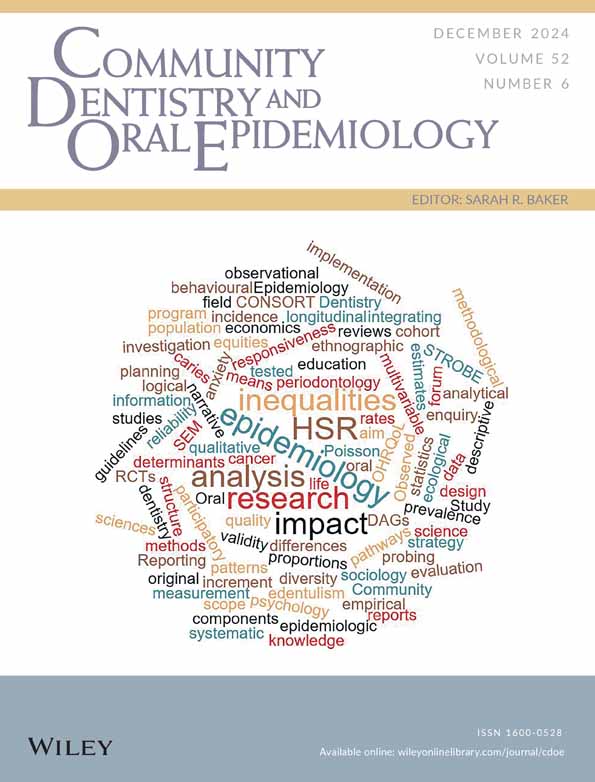Effects of depression and stress on oral self-care among perinatal women in Appalachia: A longitudinal study
Abstract
Objectives
Oral health during the perinatal period and beyond affects the health and well-being of women and their offspring. Oral self-care behaviours can maintain or improve oral health; depression or stress during the perinatal period may compromise these behaviours. The aim of the study was to investigate the independent and combined effects of depression and stress on oral self-care behaviours of perinatal women in Appalachia, given the high burden of oral disease in this region.
Methods
A total of 1172 women in the first or second trimester of pregnancy were enrolled in the Center for Oral Health Research in Appalachia, cohort 2 (COHRA2) in West Virginia or Pittsburgh, Pennsylvania. Participants completed the Center for Epidemiological Studies Depression Scale, Perceived Stress Scale-10, and self-report items about oral self-care behaviours (i.e. toothbrushing and flossing) during pregnancy and five times in the 2+ years following birth. A Generalized Estimating Equation approach was used to analyse the longitudinal data.
Results
Maternal depression and stress were independently negatively related to toothbrushing and flossing frequency. These findings for toothbrushing were more pronounced in those with high levels of depression and high levels of stress, so there were both independent and combined effects. Frequency of toothbrushing and flossing stayed constant over time, so time was not associated with outcomes. About three-fourths of the sample reported toothbrushing levels that are consistent with established guidelines (i.e. two times daily), but almost half of the participants had very low levels of flossing (i.e. once or less a week).
Conclusion
Interventions targeting stress and depression throughout the perinatal period might be helpful in improving oral self-care behaviours and oral health among women in Appalachia, in addition to the benefit of decreasing emotional distress.
Open Research
DATA AVAILABILITY STATEMENT
The data that support the findings of this study are openly available in the database of Genotypes and Phenotypes (dbGaP) at https://www.ncbi.nlm.nih.gov/gap/, reference number phs000095.v3.p1. The data are extensive including demographics, dental and oral health status, microbial status, and other phenotypes.




